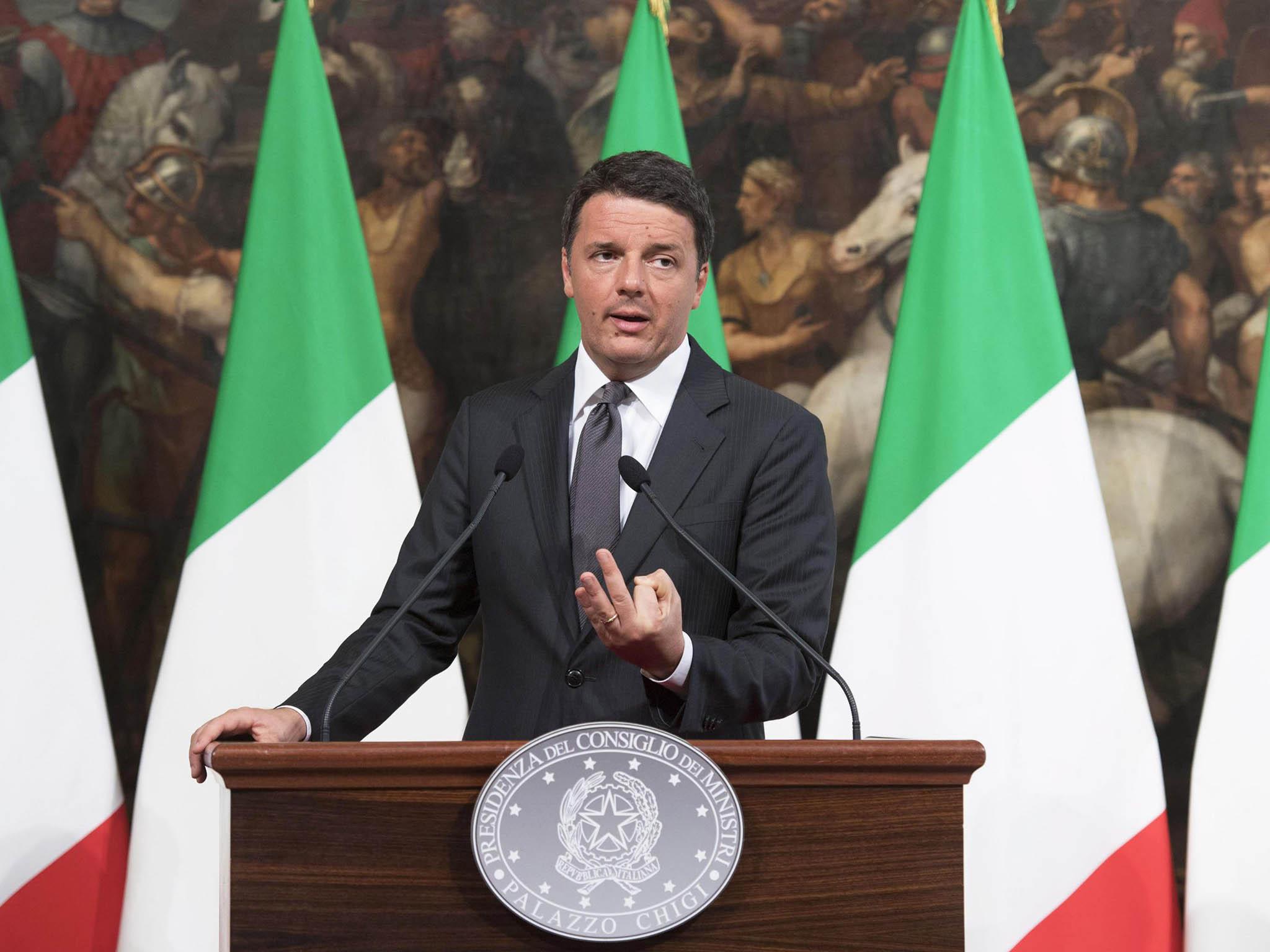These six elections are set to change Europe forever
Inspired by Donald Trump, the right, in all its varieties, is on the march. Here are the key election results to look out for in 2017


As far-right groups across Europe become normalised and more popular than at any time since the end of the Second World War, a series of votes set to be held across the continent could spell doom for the European Union by this time next year. They could even make Brexit irrelevant if far-right parties succeed in restricting freedom of movement of people in the EU, holding back migration to Europe and hastening the break-up of the eurozone.
Inspired by Donald Trump, the right, in all its varieties, is on the march. The left is being routed. Here are the key election results to look out for.
4 December 2016: Italian referendum and the rerun of the Austrian presidential election
Most attention this weekend will be focused on the Italian referendum, which seeks to make Italy easier to govern and reform. But the Prime Minister, Matteo Renzi, has made the cardinal error of threatening to resign if his proposed changes are rejected. Meanwhile, the far-right Five Star Movement (Movimento 5 Stelle, or M5S), led by a former comedian, has campaigned vigorously against the proposed changes.
Before a ban on publishing opinion polls a few weeks ago, the “No” camp was ahead. If that turns out to be the result, and Italy is plunged into a fresh political crisis, then her fragile banks could suffer yet another crisis of confidence.
If that continues then it would be beyond the means of the Italian state to save them; indeed the Italian Treasury would be unlikely to be able to sell its bonds to the domestic banks and be forced to go to the EU and the European Central Bank for a Greek-style rescue package.
Trouble is, the eurozone’s solvent members – Germany, the Netherlands and Finland – are running out of the financial means and the political willpower to subsidise their southern neighbours. With a €4 trillion banking system, and with a GDP not far off the UK’s, Italy is a nation that is both too big to save and too big to fail – and big enough to wreck the euro.
The Austrian presidental election is a rerun occasioned by some technical failings in the first poll in May. The result then was extremely tight between the Green candiate Alexander Van der Bellen, just ahead on 50.3 per cent, and the candidate of the far-right Freedom Party, Norbert Hofer, on 49.7 per cent.
Though only a ceremonial post, a Hofer victory would represent an even more significant result for the anti-migrant Eurosceptic right in a eurozone and EU member state – the first time a representative of the far right had been elected head of state or government since the Second World War. By contrast, the once dominant Social Democrats trailed on 11 per cent in the May election. Hofer is the favourite to prevail next week.
15 March 2017: Dutch general election
Once merely a noisy and unpleasant fringe grouping, the “Party for Freedom” (Partij voor de Vrijheid, or PVV), led by Geert Wilders, is just about leading the polls in the Netherlands. Because the Dutch party system is so fragmented, the PVV can do this with just 28 per cent support, a point or two ahead of the conservative governing party, the VVD.
The elections will be contested on the grounds of the economy, migration and the healthcare system. Always a mildly Eurosceptic nation, the Netherlands looks set to tilt further in that direction. Expect less support for the Eurozone’s weaker members, more pressure to restrict migration and more pressure on minorities.
4 May 2017: British local elections
These are unlikely to make much of a cross-continental impact and, ironically, might see a little recovery by the now leading pro-European mainstream party, the Liberal Democrats. Still, the Conservatives and Ukip seem likely to have a good showing, and will take the results as a confirmation of the Brexit referendum vote. A poor showing by Labour would also add to the chances of a Tory win at an early general election, again which would in effect endorse Brexit.

7 May: French presidential election
Polls suggest the conservative Francois Fillon will “trump” the Front National’s Marine Le Pen, but after recent upsets many are nervous. Even if Le Pen doesn’t win, if one in three French voters decided to back her it would be an extraordinary result, and one unthinkable not so long ago. Again, it will add to the anti-European, anti-euro, anti-migrant mood sweeping the West.
22 October 2017: German elections
This is the last date for the contests, which could be held as early as 27 August. Either way, Angela Merkel looks likely to embark on another term in office. But the far right Alternativ fur Deutschland (AfD) is polling at 13 per cent – easily sufficient to secure seats in the Bundestag and be a constant source of agitation against the EU on issues such as subsidies to Greece and Italy and, of course, migration.
Even Chancellor Merkel would have to bow to changing popular opinion, both in her own political grouping – the Bavarian wing of the Christian Democrats are more hostile to migration, for example – and in the nation as a whole.
Join our commenting forum
Join thought-provoking conversations, follow other Independent readers and see their replies
Comments